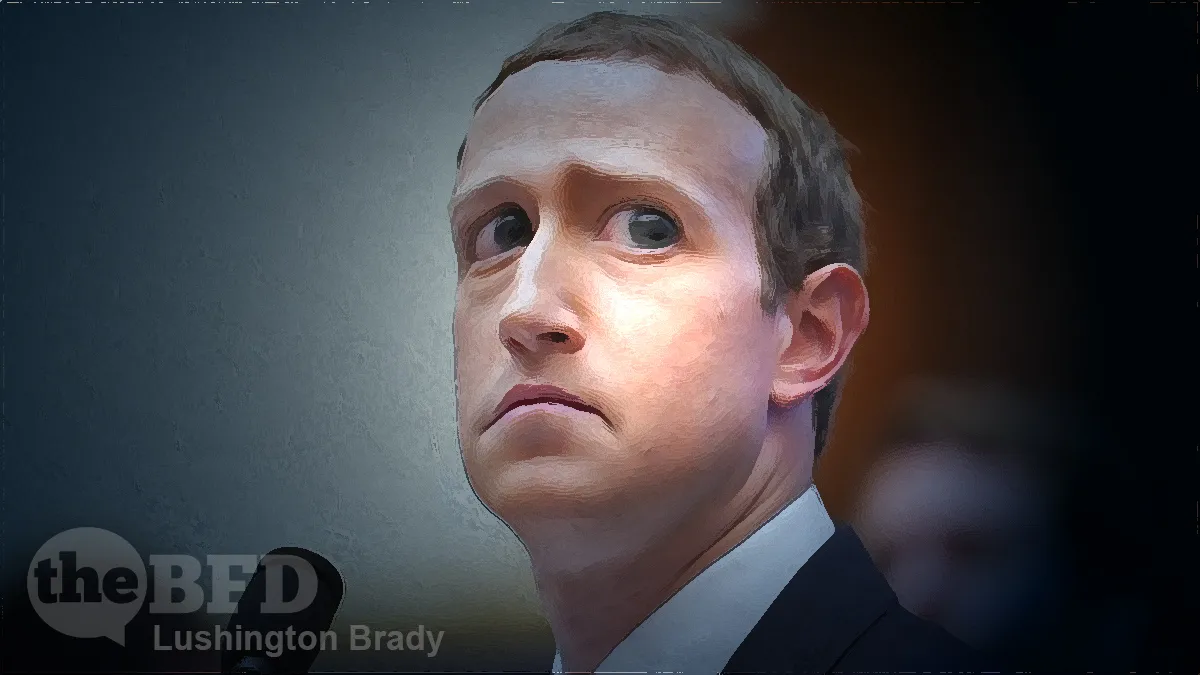Table of Contents
A common argument from the anti-free speech left is that “it’s only censorship if the government is doing it!” This, they claim, means that when social media companies censor speech on their platforms, it’s not really censorship. This is wrong, of course, on several points. Firstly, while private companies are certainly allowed to set their terms of service, those terms should be applied consistently. That’s not what happens, as we all know. Besides, when Big Tech censors factual information, that’s not covered by any terms of service.
Secondly, it’s entirely false that censorship is something only governments do. As numerous free speech rulings in the US have reiterated, anyone can violate another’s free speech rights by censoring their public expression of opinion. As we all know, Big Tech have been doing so with virtual impugnity.
The chickens may finally be coming home to roost.
House Judiciary Committee Chairman Jim Jordan (R-Ohio) is considering holding Meta CEO Mark Zuckerberg in contempt of Congress, a source familiar with the situation confirmed to The Hill Monday.
Fox Business was the first to report on Jordan’s potential move, with sources telling the news outlet Meta has not provided any internal communications on its censorship processes.
Zuckerberg was among five tech company heads who received subpoenas in February from the House Judiciary panel to turn over “documents and communications relating to the federal government’s reported collusion with Big Tech to suppress free speech,” along with any documents related to their content moderation measures, the committee said at the time.
Jordan previously called the subpoenas “one step to accountability,” as House GOP members ramped up efforts earlier this year to investigate Big Tech.
The Hill
The potential contempt charges relate, not to Zuckerberg’s infamous 2018 Congressional testimony, but Meta’s refusal to hand over documentation on how it censors, oops, “moderates” content on its new platform, Threads.
In a letter sent Monday, House Judiciary Chair Rep. Jim Jordan (R-Ohio) informed the Meta boss that Threads won’t be immune to an investigation launched earlier this year against other tech firms including Amazon, Apple, Google, and Microsoft.
“Threads raises serious, specific concerns because it has been marketed as a rival of Elon Musk’s Twitter, which has faced political persecution from the Biden Administration following Musk’s commitment to free speech,” Jordan wrote.
The Biden administration is also being blocked from colluding with its cronies in Silicon Valley.
Earlier this month, a federal judge blocked Biden administration officials from contacting social media companies in a landmark order targeting government censorship and suppression of online postings.
US District Court Judge Terry Doughty, a Trump appointee, determined that the White House likely colluded with Big Tech to censor protected speech during the COVID-19 pandemic.
And this is where a private company is potentially very much unlawfully censoring free speech.
“Since the Committee’s [Feb. 15] subpoena to Meta, we have obtained additional evidence that the federal government has coerced or colluded with technology, social media, and other companies to moderate content online,” Jordan wrote.
“These examples reinforce the Committee’s serious concerns about whether the Executive Branch is engaging in censorship by proxy — using surrogates to censor, suppress, or discourage speech in a manner that the government is unable to do itself” […]
Meta-owned Facebook also blocked The Post from sharing Hunter Biden laptop coverage and banned former President Donald Trump following the Jan. 6 riots.
“Given that Meta has censored First Amendment-protected speech as a result of government agencies’ requests and demands in the past, the Committee is concerned about potential First Amendment violations that have occurred or will occur on the Threads platform,” Jordan wrote.
NY Post
Big Tech have had good reason, to date, to feel that they’re untouchable, above the law. But, as corporate giant Disney found, as least some lawmakers won’t roll over so easily.









